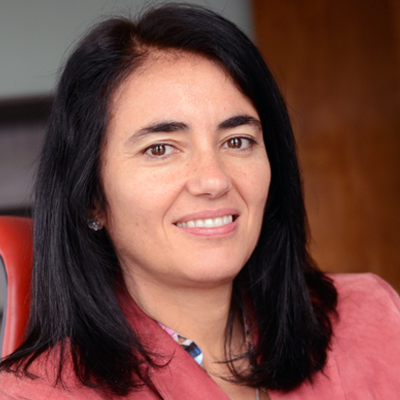Globally Ending unnecessary maternal and child deaths
Latin America has the highest income inequality in the world. While many countries within Latin America are middle to upper-middle income countries, some of the poorest individuals and families still reside within their borders. Dr. Arachu Castro, of Tulane University's School of Public Health and Tropical Medicine, has dedicated her professional career to improving the lives of the most disenfranchised in Latin America and the Caribbean. As a Guggenheim Fellow (http://www.gf.org/fellows/16737-arachu-castro) and as the first Samuel Z. Stone Endowed Chair of Public Health in Latin America at Tulane University (http://tulane.edu/publichealth/pressroom/welcome-dr-arachu-castro.cfm), Dr. Castro's research focuses on the factors that prevent provisions of quality healthcare to save the lives of pregnant women and their children and on the socio-economic conditions that make women vulnerable to maternal morbidity and mortality. Therefore, her work contributes to ending unnecessary maternal and child deaths for many of the most impoverished individuals, and most often for pregnant adolescent women.
Although with existing clinical knowledge the majority of maternal deaths can be prevented, disorganization of health services, limited resource allocation, and the conditions of poverty and inequality in which people live make it difficult for large populations in Latin America and the Caribbean to access quality obstetric care. More recently, she is focusing on adolescent pregnancy, which is not only the first reason for school abandonment but also carries a risk of maternal mortality that is three times higher than among older women.
Dr. Castro combines medical anthropology, epidemiology, and health policy analysis to identify the causes of maternal and child deaths and the actions that could solve these problems. Due to the nature of her research, her work can quickly impact the lives of women and their families and her previous research has and continues to lead to changes in policy and funding mechanisms that improve the lives of the disenfranchised. In order to affect the many women and children that she does, Dr. Castro works at three different levels: she identifies the health needs of the people living in poverty, conducts research in public health institutions to highlight the gap that currently exists in the provision of care, and works with national governments and international organizations to address policy changes. Therefore her innovative, methodological approach combined with a deep understanding of the social context in which public health problems occur, and with the engagement of lots of partners and students, allows her to make an incredible impact on the lives of millions!
Current research includes:
-
Maternal Mortality: Dr. Castro is currently working in the Dominican Republic and Peru and will soon expand to other countries in Central and South America to decrease maternal and child mortality. Dr. Castro combines micro and macro approaches by identifying the magnitude of the problem through epidemiological analysis, by interviewing pregnant women and the families of the deceased women to gain an understanding of what went wrong from their perspective, by observing the care provided in health facilities, and by analyzing health policies, and then works to enact policies that affect the overarching system.
-
VAES: In 2014, Dr Castro launched Achieving Health Equity Videos (VAES or Videos para Alcanzar Equidad en Salud, in Spanish). Based on the data collected through research, VAES produces short (3-5 minutes) videos meant to achieve three goals: 1) provide visibility to a public health problem that has not been given due attention, 2) make the population who use public health services conscious and informed of what they should expect when they seek care and demand better quality of care, and 3) make decision-makers and health providers more accountable to the population. By the end of 2015 she expects to have conducted a thorough analysis of what causes maternal deaths in 3-4 Latin American countries and produced about 20 short videos.
-
Health Inequality: Much of the inequalities experienced in Latin America and the Caribbean are a result of the poverty and social exclusion in which people live. Using data collected by national governments and institutions and combining their analysis with a social science perspective, Dr. Castro aims to move beyond the numbers and identify what the precise mechanisms are that create inequality--a necessary step to address the root causes and find the people behind the numbers.
Bio
Dr. Arachu Castro started to develop a passion for the study of Latin America and for medical anthropology when she was an undergraduate student at the University of Barcelona in Spain. She learned about the region through its history and literature and during her extensive travels throughout most of Latin America. Dr. Castro first became involved in public health projects in the region in 1995 when she was writing her doctoral dissertation and moved temporarily to Argentina. While there, she volunteered with a local non-governmental organization that provided support to a network of community health workers who promoted maternal and child health in urban slums. This experience reaffirmed her interest in public health to return to Latin America better equipped to conduct research and help improve access to quality healthcare. Upon completion of her Ph.D. studies in social anthropology and sociology, she obtained a master's degree in public health from Harvard in 1998.
With the firm belief, as an anthropologist, that she needed to gain as much field experience as possible if she was to understand people's health needs and achieve any significant impact, Dr. Castro has spent a considerable amount of time in Latin America and the Caribbean. First came Mexico, then Haiti and Peru, followed by Cuba, Puerto Rico, Venezuela, Colombia, the Dominican Republic, and stints in Brazil, Nicaragua, and Honduras. In all these countries, her major interests have been how social inequalities are embodied as differential risk for pathologies common among the poor and how health policies may alter the course of epidemic disease and other pathologies affecting populations living in poverty. Infectious disease, particularly HIV, and women's health have been her main areas of interest.
Dr. Castro is the first Samuel Z. Stone Endowed Chair of Public Health in Latin America at Tulane University. Prior to joining Tulane in 2013, she was Associate Professor of Global Health and Social Medicine in the Department of Global Health and Social Medicine at Harvard Medical School, Senior Advisor for Mexico and Guatemala at Partners In Health, and Medical Anthropologist in the Division of Global Health Equity in the Department of Medicine at Brigham and Women's Hospital in Boston. Among other awards, Dr. Castro is the recipient of the 2005 Rudolf Virchow Award of the Society for Medical Anthropology and the 2010 Guggenheim Fellowship for her work on Women and AIDS in Latin America and the Caribbean. In 2012, she was named Fellow of the Society for Applied Anthropology. Dr. Castro has worked as consultant for PAHO, WHO, UNICEF, UNAIDS, UNDP, and the World Bank.
In her free time, aside from research, Dr. Castro enjoys photography and traveling. She also spends a lot of time with her family and friends exploring New Orleans, her current hometown. Most simply, Dr. Castro says that she just wants to "enjoy life!"
Website: http://tulane.edu/publichealth/ghsd/faculty_arachu_castro.cfm
In the News
The New York Times


